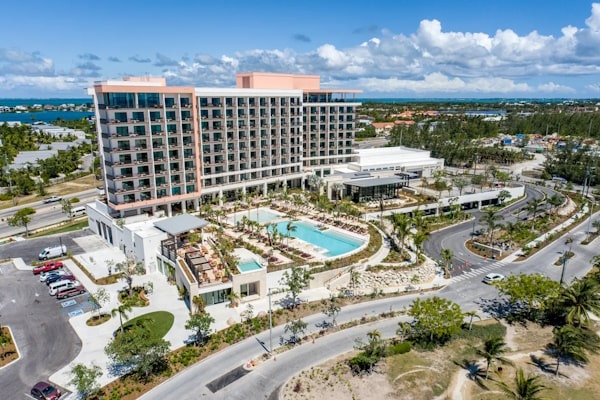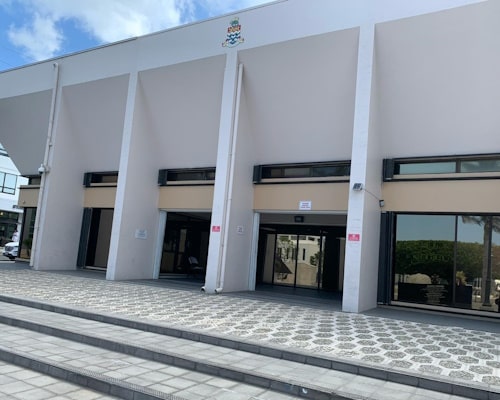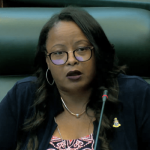CUC and CREA welcome revised energy policy
(CNS): The Cayman Renewable Energy Association (CREA) and CUC have welcomed the recent publication and Cabinet’s acceptance of the new National Energy Policy and its target of getting Cayman to a 100% renewable energy supply by 2045. After years of disputes, both parties have offered their support to the policy, which requires each of them to play a major part in the challenging transition over the next 21 years to alternative energy, largely solar.
With only 3% of local power currently coming from green sources, the target will not be easy to achieve, and it’s unlikely that the two entities have yet called a truce.
In the wake of the policy’s publication, CUC, which owns the grid and supplies 97% of all the power generated, told CNS via email that officials were still reviewing it but said it contained “a lot of positive objectives and goals that will assist the Cayman Islands with carbon reductions”. The power provider also said it would bring significant cost savings for customers.
“Our Company looks forward to contributing in a meaningful way to reaching these goals and is pleased to see the emphasis placed on utility-scale solar and liquified natural gas as a transitionary fuel,” a spokesperson for CUC stated. “We will continue to consider how we can work within the goals of the new policy and meet our objectives of reducing carbon emissions and lowering fuel factor costs for all of our consumers while maintaining our excellence in reliability.”
CNS had asked about the timeline to achieve the 100% renewable goal, which has been reduced by five years from the first draft policy. This had 2050 as the target date for completing the transition from all fossil fuels, and we asked how this impacted CUC’s plan to adapt some of its existing diesel generators to use LNG. However, the company did not comment on this.
Meanwhile, CREA President James Whittaker, who is also the chairman of the Energy Policy Council, congratulated the government and those who contributed to the work.
“Once implemented, this new policy represents the largest step forward to date in creating a lower cost and more sustainable energy future for the Cayman Islands, based on consumer choice, fair competition and environmental stewardship,” he added.
The disagreements between CUC and CREA were largely about CUC’s focus on utility solar at what CREA says is the expense of rooftop solar. This is due to the piecemeal access the power company has offered over the last eight years since a system was created to allow those with domestic renewable generation from wind and solar to feed in and draw out of the grid. CREA has also raised concerns about how close CUC is to the regulator, its role in shaping bids and its purchase of land for a solar farm, which it pitched to the government outside of the open competitive process.
CUC blames CREA for constantly objecting to its efforts to transition to solar by pushing for open competition, lobbying for too high rates for those using feedback programmes such as CORE and DER, and pushing for more expensive domestic generation rather than utility-scale projects, which CUC says will produce cheaper green energy for everybody, not just those that can afford to fit renewable generation into their homes.
But given the new 100% target date and the interim target of achieving 70% renewables within the next 13 years, the race is now on to generate more than 60% of Cayman’s growing energy demand from solar. This will require more people to embrace rooftop solar all across Grand Cayman as well as the development of a solar farm.
In April 2022, OfReg ran a pre-qualification bid for a utility-scale solar project to generate 23 megawatts of power. Two years on, the regulator has still not opened the bid for the actual project. However, the project will not be sufficient to help achieve the 2027 target of 70% of power coming from green sources. CUC recorded a peak generation of 124.1MW on 18 July. Since then, its customer base has grown, and with it demand, with no sign of the population surge slowing down, and yet, 23MW is only around 20% of the power required to keep Cayman switched on.
With just 5MWs coming from t
The existing solar farm in Bodden Town supplies just 5MW; at most, another 9MW is expected to be supplied by the burning of rubbish by 2027 if the government ever finalises its deal with Dart over the waste-to-energy facility, and just a fraction of power generation currently coming from rooftop solar. Therefore, unless an even larger solar farm is built or there is a massive investment in rooftop renewables, the country will not make either the 2027 or the 2045 targets.
Meanwhile, as CUC faces down its critics over the slow progress on renewables, the company was promoting the fact that it has managed to recycle 2.7 million pounds of scrap metal, cable and transformers over the last four years. CUC was given a Green Diamond Award by Cadwell Inc., a recognised leader in recycling in the region. Forty-eight 20-foot containers, sixty-eight 40-foot containers and five 40-foot flat racks have been filled with recyclable materials and shipped off island since 2019.
- Fascinated
- Happy
- Sad
- Angry
- Bored
- Afraid
Category: Business, Energy, Science & Nature, utilities





































Nothing significant is going to change until and unless the production of Energy is decentralized. It’s now possible to reduce the cost of power by establishing mini neighborhood grids. We are sitting ducks being farmed by a centralized utility CUC. The cost of electricity would not fall if they are allowed almost total control. Wake up Cayman and stop feeding the beast.
Decentralized power generation definitely has social benefits and should be pursued over ‘solar farms’, but, its not cheaper dollar-wise. (There are ways to make it economically equitable to consumers & generators, and it is economically better for the country, but I don’t think that’s what people think about when they hear ‘cheaper’ is my only point. I don’t want us to lose the hard argument for decentralized power generation through misplaced expectations.)
Been hearing a lot of talk about microgrids lately. While these microgrids sound good, I am yet to see any evidence of them reducing costs to the users, quite contrary actually. Microgrids are often useful for critical power supply where they allow for self sufficient back up of the grid. Also most microgrids still require the grid to provide backup service for some of the time. Pretty sure CUC isn’t going to provide that for free so the whole microgrid panacea of freedom and cost reduction really is a bit of wishful thinking.
So the question is how long will Ofreg & CUC take to approve new program?
I understand that one solar company is already selling them but no other solar company is??
How can you sell something that is not in place??
I’m hearing that the one solar company that is selling them is still not able to provide the systems that they took deposits for last year.
that’s what I also understand they take payment in full and don’t deliver saying it’s planning or CUC,
Do you understand that there is only 1 solar company? All other solar is rooftop based. Perhaps the main point of this policy is to get other utility scale solar production asap.
2045 for a small island like this is a joke. We should be aiming for 2030 or earlier. Meanwhile in India, massive in comparison: https://www.energy-transitions.org/publications/roadmap-to-indias-2030-decarbonization-target/
All I know is that if CUC are welcoming it, then we the consumer residents of Grand Cayman are being screwed over.
Sunshine surcharge soon come
Bury the powerlines
Will OfReg now mandate that all solar installations (big/small, rooftop/utility scale) be required to include battery storage so that each installation is providing a smooth, stable source of power to the grid during daylight hours?
Or will us consumers be required to pay for this process to be done by CUC?
My opinion is that ever power producer MUST be producing a product that is within the usable tolerances and not require further equipment/costs, provided by someone else, to make it so.
Impossible.
I think the article may have made an error in saying 100% renewable energy by 2025 in the first sentence. That is next year!
CNS: Yes, sorry! It’s corrected now.
There’s another issue with the incomplete sentence:
“With just 5MWs coming from t”